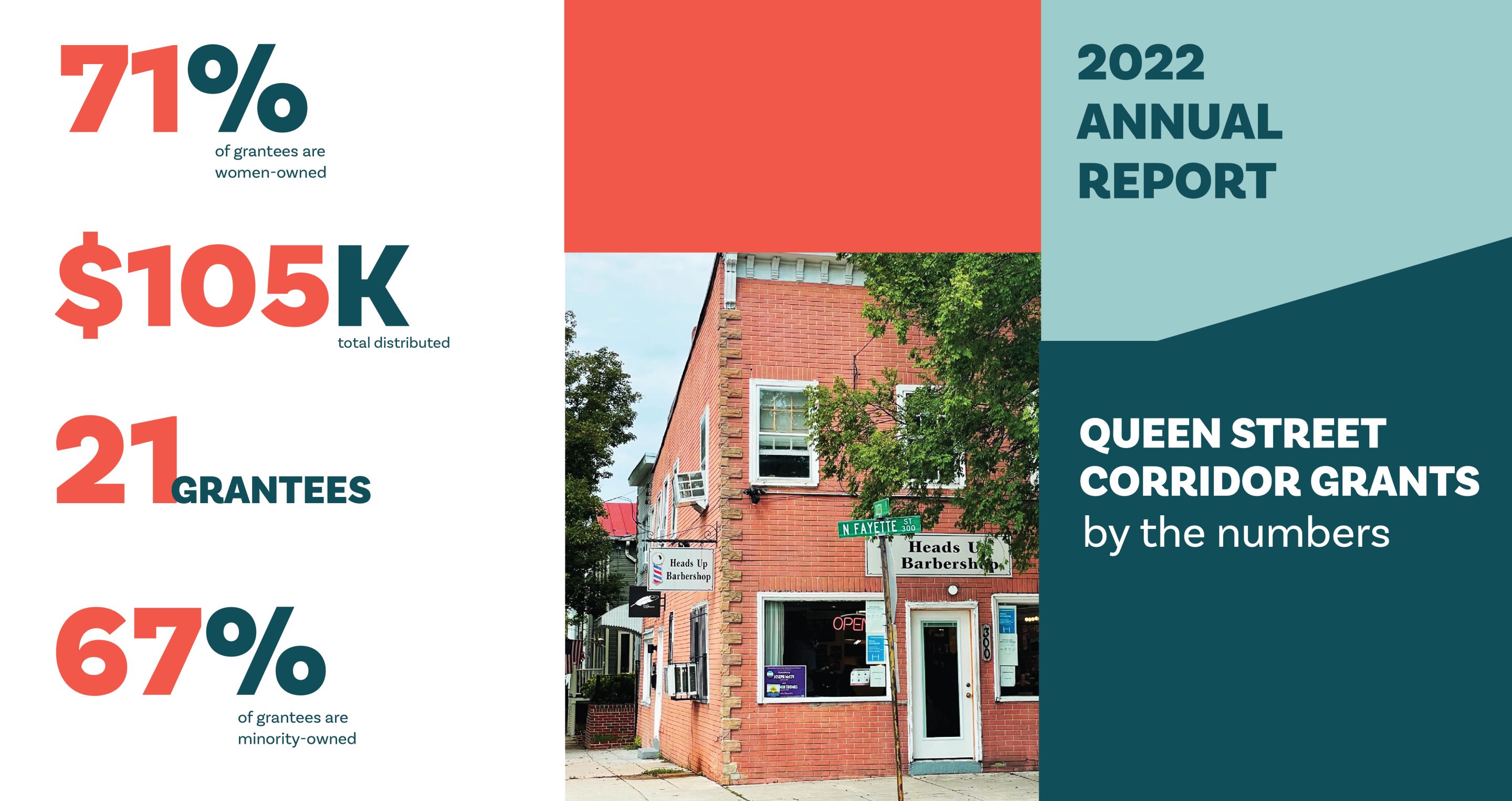
An AEDP grant program helped several small businesses in the Queen Street neighborhood stay open after the COVID-19 pandemic reduced revenue.
As of March 2022, 21 community-serving businesses each received a $5,000 grant through the Queen Street Business Corridor Grant Program to support their ongoing COVID-19 recovery and long-term resiliency. The Queen Street Business Corridor, located in the Parker Gray neighborhood of Alexandria, is a historically Black business district.
The five-year-old Salon Meraki, at 1101 Queen Street, was forced to shut down for three months when the pandemic hit. “Things were very hard, especially when we still had to pay rent while not making any money,” said salon owner Kathleen Le. “So for us to receive the $5,000, it was a blessing in the sky.”
Le used the money to pay for some of the salon’s supplies. She opened her salon in November 2017, opened a second location on King Street in May 2018, and she was ultimately able to double the size of her Queen Street location, taking over the vacant retail space next door in early 2022. She said salon customers are coming back after three years of the pandemic, “but it’s far from bouncing back to normal.”
At the nonprofit Hopkins House, located at 1224 Princess Street, costs increased during the pandemic, as its child care center needed to purchase masks, gloves, and extra cleaning supplies. They provided masks for employees, as well as parents who could not afford masks.
At the same time, enrollment plummeted as families stayed home. Revenue during the first year of the pandemic dropped by 40%, according to Hopkins House President and CEO J. Glenn Hopkins. In addition, their government support decreased because it is primarily based on attendance numbers, he said.

Hopkins is proud that the child care facility only closed during the first two weeks of the pandemic lockdown in March 2020. Hopkins House leaders knew they needed to reopen to provide child care to essential workers. With strict pandemic protocols in place — including requiring face masks early on and later requiring vaccines for staff — no child was infected with COVID-19 at Hopkins House in the first two and a half years of the pandemic, Hopkins said.
The AEDP grant helped pay for the constant purchase of new masks, including the more expensive clear masks, where you can see a person’s mouth, allowing for better communication, Hopkins said.
“The grant really saved us without us having to figure a way to [increase] tuition, which would have been a problem during that period,” Hopkins said. “And it really saved, in my view, a lot of folks from getting severe illness due to COVID.”
In addition to the AEDP grant, private funders helped Hopkins House keep its doors open, and many parents continued to pay full tuition, even if their children weren’t attending preschool at that time.
“They realized pretty quickly that if they stopped paying the tuition, we’d have to lay off our employees. They donated in the first year … from April through August, about $70,000 with the understanding [it would] be used to keep the center open,” Hopkins said.
“The extraordinary generosity of the local community and the City of Alexandria through the AEDP grant — and our parents who were empathetic to the financial and emotional stress that was on our staff — I just feel blessed by the outpouring of caring that came from all sorts of sectors,” he said.
The Queen Street Business Corridor Grant Program was just one aspect of a larger effort by AEDP, the City of Alexandria Department of Planning and Zoning, the Social Responsibility Group, and other community partners to engage and support small business owners in the Queen Street Business Corridor. The one-time grant program was funded through an allocation made by the Alexandria City Council from the Braddock Community Amenities Fund, which is a special fund created by the City Council to support the implementation of the Braddock Metro Neighborhood Small Area Plan. A key component of that plan is the preservation and expansion of community-serving small businesses.